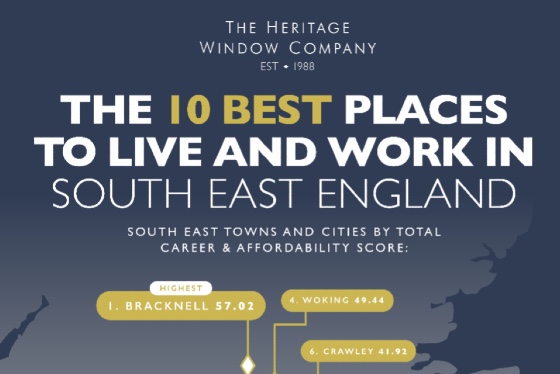Search Party is on a quest to redefine how companies around the world are hiring their employees. Its recruitment marketplace has attracted millions of professionals represented by over 1,500 recruiters and, together, they are making the hiring process faster, easier and more profitable for everyone involved. Here, we caught up with Search Party’s CEO, Ben Hutt to discuss the company’s continuing success, plans for the New Year, and why diversity should remain high on the HR agenda…
1. How did the concept of Search Party come about – did you spot a gap in the market?
We realised the fundamental problem in recruitment is that it takes too long to hire people. Agencies are useful, but they can be too expensive because they have to spend their time selling to new customers. Therefore, we thought that if we retained the best aspects of what agencies offer and optimized the rest, we’d end up with a better hiring process; so that’s what we did. Granted, it was very expensive to make it all happen, but we’ve attracted 7,500 employers around the world, as well as 1,500 recruitment agencies with approximately nine million candidates.
2. So what year was Search Party founded?
We founded the business in 2011, starting as a cloud-based recruitment platform, but we began to notice that the recruitment industry was in denial about the structural change that was coming, such as the heavy use of LinkedIn. Everyone was trying to kill the agency, and we took a different view and standby the fact that agencies are great at what they do best with the candidates. We first launched the marketplace in 2014 – it took a couple of years to build – and we first introduced Search Party in Australia, followed by a rollout in the UK the same year, and then moved into the Canadian market in 2015.
3. What made you decide to expand to the UK and Canadian markets from Australia
Well, two English guys founded the business in Australia and we always knew that bias and stereotyping in recruitment was a global problem. So, when looking to branch out, the UK was an obvious choice as it’s competitive and innovative due to people going online for practically everything. As for Canada, we did this as a sort of stepping stone for an eventual US launch – it’s the best place to start in North America without battling the US head-on, and it worked out to be a very logical decision and low-cost location.
4. As Search Party is free for everyone to use, how does the platform generate an income?
When a candidate gets hired, we take a portion of the fee paid. We manage the payment process between the employer and the recruiter – just like if you were to buy an item from eBay, eBay takes a portion of the total transaction and then passes the rest onto the seller. We keep 20 per cent of the fee.
5. You said it took a couple of years to really develop Search Party into the platform it is today. What kind of results have you seen since launching?
The UK is growing much faster than anywhere else. But it’s interesting to see that, even though we are mainly interested in the UK, Australia and Canada, we’ve recently experienced use in the US and other parts of Europe. It gives us great confidence to launch in the US next year, and we’re also exploring further opportunities in markets such as Singapore. The technology is purposely built to be used in any location and, from my perspective, we should be progressively entering new markets in the New Year.
6. I understand that you also commission research – why has Search Party decided to go down this route?
The reason why is because we want to help people realise the cost of what they do. For instance, small businesses don’t appreciate the true costs of hiring. People can take it for granted and say that it takes too long, or half the time it’s wrong and that’s just life. But we don’t think that’s okay. We think that you should be able to hire the right person in two weeks, every time.
What people don’t seem to understand is the value of that. If I’m hiring a new salesperson and it takes an average of 12 weeks – which is roughly how long it will take if I were to use the traditional methods – then for that period I’m wasting my time reviewing job applications and interviewing candidates. Those two factors together add up to a lot, and when you add the fact that about 50 per cent of the time I’m going to get it wrong, it’s a massive cost to all businesses.
From our point of view, one of the opportunities for conducting research is to educate small business owners, and our business model helps to reduce all costs significantly; together with the technology that we have, the quality and accuracy of the hiring.
7. Have you attracted any big-name clients?
We don’t spend a lot of time celebrating big-name clients as, for us, we put our value in being a marketplace and having thousands of people using our service. But we do have one of the big four banks in Australia, as well as two big accounting firms, and some of the UK’s biggest employers across a range of industries. So, despite our primary focus of just small businesses, big-name clients are coming to us anyway.
8. Judging from Search Party’s website, the entire process is carried out anonymously?
When an employer searches for a candidate, they see anonymous profile: no name, picture, address, telephone number, etc. Recruitment agencies get to choose how much information they would like to share with candidates. For instance, a recruitment agency can sign-up and provide 10,000 candidate CVs. We then collect them, remove all personal information, and turn those CVs into documents showcasing just experience and skill-sets.
We also analyse whether people are ready for a move-up in their careers, or a move because statistically they have been in their current roles long enough to move onto another company.
So at the beginning of the process, candidates are anonymous and the employer can instead focus on finding profiles of people with the right skills and experience, removing any unconscious bias. This levels the playing field for candidates. Once interviews take place, anonymity is removed.
9. But surely that must take a long time to process?
Not at all. We can process about 10,000 CVs in less than 24 hours – it’s all automated and phenomenally quick. We have thousands of CVs coming in from all over the world every day, and employers can only view an anonymous profile until a recruiter seeks permission from the candidate to put them forward for the job.
10. Are there any developments Search Party is working on at the moment for the New Year?
There are always lots of good things on the go! We are mid-way through a user rebuild which includes mobile and a bunch of other pretty cool things that we’ve been working on for quite some time now. We also just rolled out a new communications platform for employers and recruiters to message each other.
JobAdvisor was also recently launched here in the UK – similar to TripAdvisor, but for companies – and candidates can see what it’s like to work for different companies, as well as view comments and photos.
11. Diversity continues to be such a big topic of conversation in HR. What do you believe employers need to focus on more in regards to the recruitment process?
For us, we believe that all companies should embrace diversity. As a tech business, we’ve got a high proportion of women on board; we have more than 20 nationalities working across the world. The reason we’ve achieved this is because we purely focus on what people’s talents are, and whether they would be culturally motivated the same way as we are.
One of the things that I love about our platform is the anonymisation element solves a lot of that because you decide what type of person you want. You won’t know whether the individual is a male or female; where they were born or went to school. All stereotype and bias indicators are removed at the very beginning. The recruitment judgement should always be about skills and cultural fit – employers are far too quick to make judgements on the wrong information.
To get started with Search Party, click here









